Nov 2021 2nd edition
Nov 2021 2nd edition vuyelwan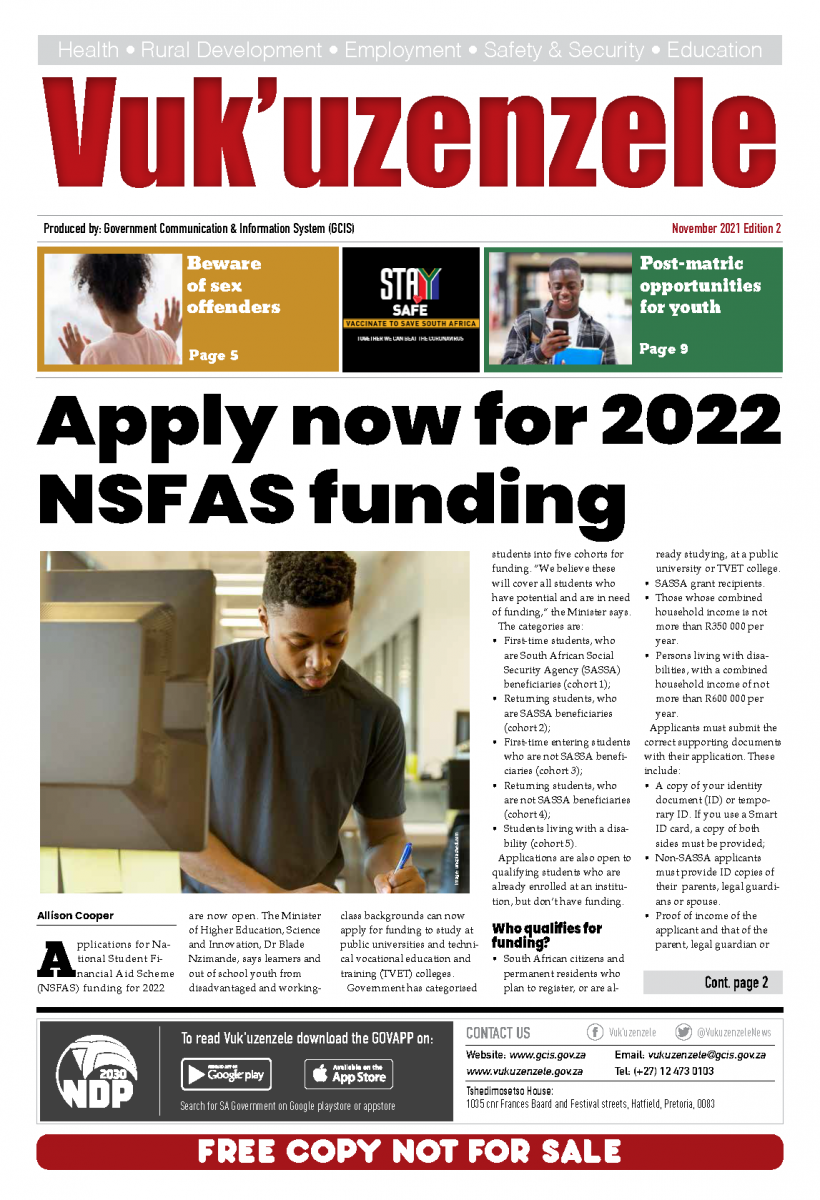
Translations
Afrikaans
isiNdebele
isiXhosa
isiZulu
Sepedi
Sesotho
Setswana
Siswati
Tshivenda
Xitsonga
A new DEAFinition of communication
A new DEAFinition of communication LondekileA new app has been launched to teach people how to use South African Sign Language (SALS) so they can communicate with the deaf.
The app is a visual dictionary of words and is available on Google Play and Apple iStore. The app teaches how to sign in words it is for everyday conversation.
DEAFinition, a non-profit organisation that provides a range of services and funding opportunities to promote equal access for the deaf community, has championed the creation of this app.
DEAFinition Director Mariska de Beer believes the app will help bridge the communication gap the deaf face daily.
“It is estimated that two million South Africans have varying levels of hearing loss. Over half a million people communicate in SASL. Deaf people cannot hear, and many hearing people cannot sign.”
Human connection is what binds communities together since everyone desires to be seen and heard, says de Beer.
“It takes about two minutes to download this app that could, at the very least, make someone smile and, at best, potentially save someone’s life in an emergency,” de Beer says.
She says app users can communicate with deaf colleagues, customers or friends, or simply learn a new skill.
“Many deaf people find it hard to access important services at municipalities, clinics, emergency services, police stations and hospitals. We encourage everyone to download the app and learn basic SASL as you never know when you may interact with a deaf person,” she says.
For more information, visit www.deafinition.co.za or send an email to info@deafinition.co.za
Animals and nature – yours free for a week
Animals and nature – yours free for a week LondekileSouth African National Parks (SANParks) is inviting South Africans to visit its parks for free for one week.
SANParks Week takes place from 22-28 November. It is hosted in conjunction with sponsors Total Energies and First National Bank, who are covering the costs of entry fees.
During this period, day visitors can enter most of South Africa’s national parks for free until 28 November with a few exceptions.
The following parks will only offer free entry on weekdays (22–26 November): Addo, Augrabies, Table Mountain, Kgalagadi, Kruger and the Tsitsikamma section of the Garden Route National Park.
The offer does not include tourist activities and accommodation facilities.
SANParks Acting Chief Executive Officer Luthando Dziba says, “SA National Parks Week is an annual campaign that gives all South African citizens the opportunity to enter most of the parks managed by SANParks for free."
The week is meant to cultivate a sense of pride in South Africa’s natural, cultural and historical heritage, and a deeper appreciation of biodiversity.
Dziba says SANParks works hard to make the country’s national parks a symbol of pride to people, especially those communities living near parks.
“Through our socio-economic transformation programmes and our Expanded Public Works Programme, we work closely with communities living adjacent to national parks in a quest to be more inclusive in our management of protected areas.”
Since the start of SA National Parks Week in 2006, about 591 234 South Africans have taken up the offer of free entry.
As a result of the Coronavirus Disease (COVID-19), this year the number of guests at each park will depend on COVID-19 gate quotas and normal COVID-19 safety protocols will apply.
Some of the parks to explore include Bontebok National Park, Camdeboo National Park, Golden Gate Highlands National Park, Karoo National Park, Mapungubwe National Park, Marakele National Park, Mokala National Park, Mountain Zebra National Park, Tankwa Karoo National Park and Richtersveld Transfrontier Park. The Boulders section at Table Mountain National Park will however, not offer free entry at all.
Visit www.sanparks.org/about/events/parks_week/ for more information.
Apply now for 2022 NSFAS funding
Apply now for 2022 NSFAS funding vuyelwanApplications for National Student Financial Aid Scheme (NSFAS) funding for 2022 are now open. The Minister of Higher Education, Science and Innovation, Dr Blade Nzimande, says learners and out of school youth from disadvantaged and working-class backgrounds can now apply for funding to study at public universities and technical vocational education and training (TVET) colleges.
Government has categorised students into five cohorts for funding. “We believe these will cover all students who have potential and are in need of funding,” the Minister says.
The categories are:
- First-time students, who are South African Social Security Agency (SASSA) beneficiaries (cohort 1);
- Returning students, who are SASSA beneficiaries (cohort 2);
- First-time entering students who are not SASSA beneficiaries (cohort 3);
- Returning students, who are not SASSA beneficiaries (cohort 4);
- Students living with a disability (cohort 5).
Applications are also open to qualifying students who are already enrolled at an institution, but don’t have funding. 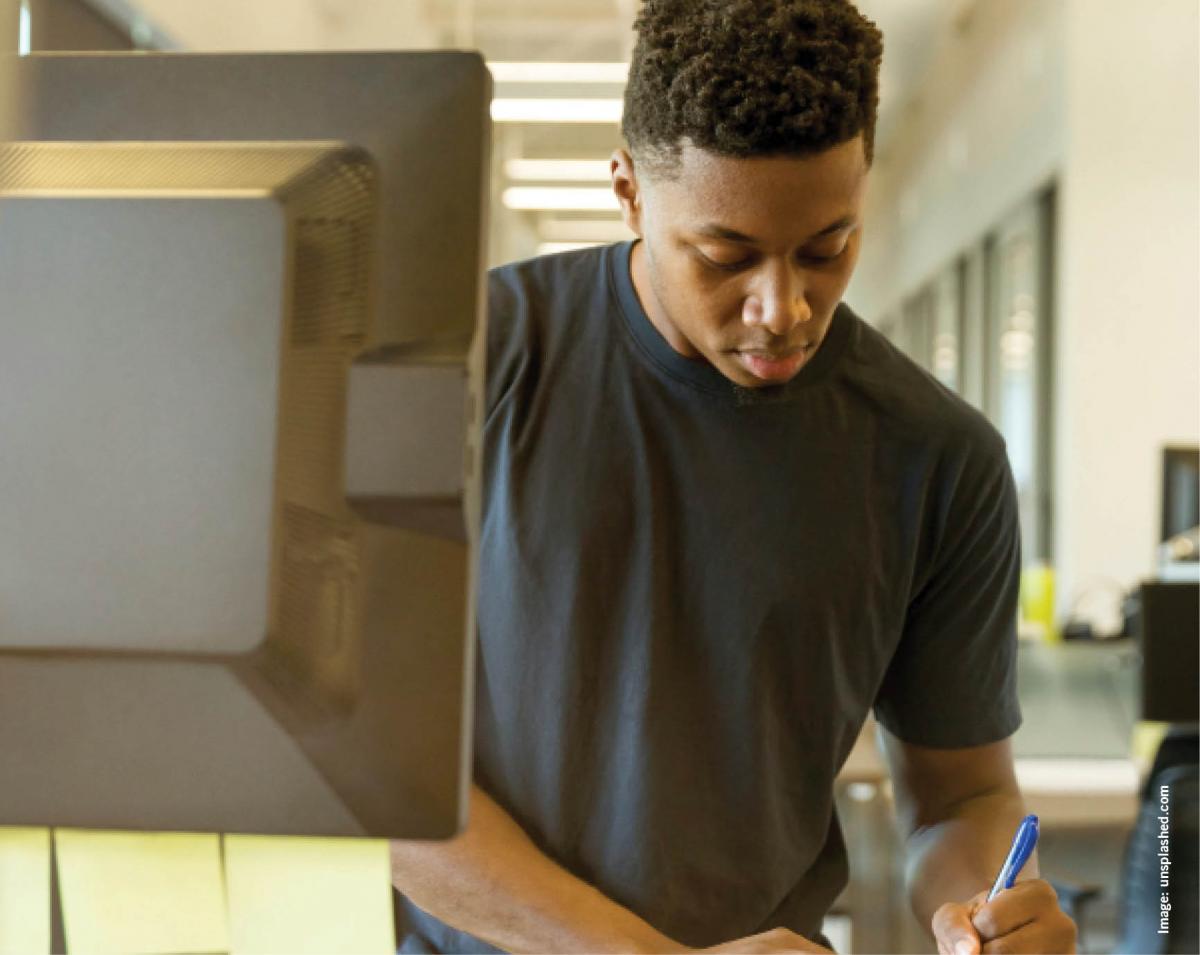
Who qualifies for funding?
- South African citizens and permanent residents who plan to register, or are already studying, at a public university or TVET college.
- SASSA grant recipients.
- Those whose combined household income is not more than R350 000 per year.
- Persons living with disabilities, with a combined household income of not more than R600 000 per year.
Applicants must submit the correct supporting documents with their application.
These include:
- A copy of your identity document (ID) or temporary ID. If you use a Smart ID card, a copy of both sides must be provided;
- Non-SASSA applicants must provide ID copies of their parents, legal guardians or spouse.
- Proof of income of the applicant and that of the parent, legal guardian or spouse (where applicable). Non-SASSA recipients must provide their latest payslip (not older three months), Unemployment Insurance Fund letter or appointment or retrenchment letter.
How and where to apply
Students can apply online at www.nsfas.org.za. Follow these steps:
- Step 1: Go to www.nsfas.org.za and click on the ‘myNSFAS’ tab;
- Step 2: Create a myNSFAS account;
- Step 3: Click on the ‘apply’ tab and complete the sections on the screen;
- Step 4: Upload the required supporting documents, where applicable;
- Step 5: Click ‘submit’.
If you do not have a digital device or access to the internet, visit your nearest National Youth Development Agency offices or Thusong Centre to apply.
Funding is only offered to students who are financially eligible for NSFAS funding and who obtain a firm place to study, in an approved programme, at a public institution.
Faster application process
While there were concerns that applications opened later than usual this year, the Minister says a new, user-friendly application process and systems have been developed to provide real-time responses to students, without compromising the application validation process.
“The time needed to perfect it meant that applications could not open in September. It was critical that we waited until the system was ready for implementation. The new system will provide real-time funding eligibility decisions for first-time entry students and those linked to SASSA grant funding,” says Minister Nzimande.
These students make up 65% of the cohort. The other 35% of applicants will go through further processing, which may take up to 48 hours for them to receive the outcome of their application.
The Minister has also appointed a Ministerial Task Team (MTT) to look at future student funding policy issues.
“The MTT is working hard at developing policy proposals for a long-term student financial aid policy, that takes into account the comprehensive student financial aid needs of the post-school system.”
Despite the fact that government has increased funding exponentially for students in TVET colleges and universities, the Minister says it remains concerned about categories of students who struggle to afford higher education and the growing levels of student debt. Applications for funding close on 7 January 2022.
For more information, visit www.nsfas.org.za or follow on social media at Facebook: National Student Financial Aid Scheme, Twitter: @myNSFAS and Instagram: @myNSFAS
Beware of sex offenders
Beware of sex offenders vuyelwanConsult the National Register for Sex Offenders before hiring staff to care for children and those with intellectual disabilities.
If you are an employer who runs an early childhood development centre, you are among the people required by law to check if your current and potential employees are on the National Register for Sex Offenders (NRSO).
The NRSO falls under the Department of Justice and Constitutional Development and employers must approach it to check if prospective employees are listed.
An employer also includes a parent looking to employ a house helper, a school governing body or a hospital.
The NRSO was established by an Act of Parliament in 2007. It is a record of names of those found guilty of sexual offences against children and people with intellectual disabilities.
Ntombizodwa Matjila, the NRSO Registrar, says the register contains names of both male and female offenders.
These are people who have committed offences against children and those with intellectual disabilities, such as:
- Statutory rape;
- Compelling or causing children to witness sexual offences;
- Sexual acts;
- Sexual exploitation;
- Sexual grooming;
- Exposure or display of child pornography to children or people with intellectual disabilities and using children or people with intellectual disabilities for pornographic purposes.
“If an employer finds out that the name of an employee appears on the register, the employer must move that employee to another post that will not bring him or her in contact with a child or an adult with an intellectual disability,” says Matjila.
If the employer is unable to move the employee to another position, they are required to terminate the employment contract.
Information contained in the NRSO includes:
- Offenders’ full names and surname, nickname and their profession or trade;
- Offenders’ known physical address, and any contact details, including a postal address;
- Offenders’ identity number or passport number;
- The type of sexual offence.
The register is not open to the public. It can only be consulted by employers to obtain clearance certificates for those whose names are being checked.
It is a crime to disclose to anyone else the information contained in the register.
For more information contact Matjila on 012 315 1656 or email NMatjila@justice.gov.za
Census 2022: The numbers matter
Census 2022: The numbers matter LondekileSouth Africa will conduct its fourth national census since 1994 in February 2022. Thousands of people will go from door-to-door to gather information about the country’s population.
Statistics South Africa (Stats SA) will conduct the census and needs to recruit about 165 000 temporary staff from across the country for fieldwork activities, including data collection and administrative roles.
Statistician-General Risenga Maluleke says the recruits will be trained and awareness campaigns will be held so that members of the public understand why census-takers are knocking on their doors and asking questions about their household.
Stats SA says digital devices will be used to gather information rather than a paper questionnaire, and the possibility of some people completing the questionnaire via the internet is being explored.
Why is it important that everyone is counted?
The census will ensure government has the data it needs to come up with policies and programmes that are effective. It needs to know:
- How many people there are in the country;
- Which areas have more people;
- The age of the country's population, if they are employed and what their level of education is;
- What type of dwelling people live in, and what their living conditions are like.
The information gathered in the census will help government know what and where the most pressing needs of the country are, so they can be addressed.
For example, counting the number of babies will enable government to know how many early childhood development centres and schools will be needed in the years to come.
Privacy and safety
Data collected during the census will be kept private, meaning people’s personal information will not be shared with anyone, and measures will be in place to ensure that census-takers are easily identified.
Stats SA fieldworkers can be identified through the official Stats SA ID card displaying the Stats SA logo, their photograph and their unique number.
Every precaution will be taken by Stats SA to ensure any Coronavirus Disease (COVID-19) risks are minimised. “The impact of COVID-19 is still with us, but we will follow all the regulations and observe all the safety protocols,” says Maluleke.
Job opportunities
Registration for the recruitment database for February 2022 is now open and will close on 31 December. To register on the database, visit www.statssa.gov.za/hr. Registration on the database is data-free and no payment is required to register for employment opportunities at Stats SA.
Children can call 116 for help
Children can call 116 for help UrsulaChildline South Africa has a new tollfree number, which is shorter and easier to remember. By dialing 116, children and adults can receive help with problems facing children, says Childline South Africa’s National Executive Officer Dumisile Nala. 
“The new number also works outside of South Africa, enabling us to join forces with other African countries to ensure the effective delivery of child protection services and strengthen partnerships with child protection agencies,” she adds.
Childline South Africa’s call-in counselling service helps children to communicate in their own way and in their own time.
This helps them to feel in control and free to discuss dangers and difficulties in a way that would be far too risky in face-to-face contacts.
Trained volunteer councillors run the 116 Helpline. They listen to children’s concerns, help them to understand what they feel and talk to them about issues that affect them directly. Children can talk self-harm, sexting, sexual abuse, children’s rights, exam stress and eating problems.
Children can also call 116 in an emergency. If necessary, Childline will refer them to the police and/or a social worker at the Department of Social Development.
“Childline South Africa will continue to help prevent child abuse, promote and protect the welfare of all children and child support systems in South Africa,” says Nala.
For more information about Childline South Africa, visit www.childline.org.za
Facebook masterclass to boost business
Facebook masterclass to boost business UrsulaGovernment is helping entrepreneurs ride the digital wave by sharing online marketing opportunities with them. 
Government Communication and Information System (GCIS) recently partnered with non-profit organisation Digify Africa to host the first of two free virtual digital skills masterclasses for small businesses and media entrepreneurs.
The masterclasses, which form part of GCIS’s VukTalks series, aim to equip entrepreneurs with the skills they need to thrive in the digital economy.
VukTalks Boost with Facebook, the first masterclass, taught entrepreneurs how to build their online presence on Facebook.
Digify Africa’s Lead Trainer and Business Development Executive Xolani Sedibe led the masterclass, which was attended by over 80 entrepreneurs from various sectors of the economy.
He explained that the aim of digital marketing is the same as that of traditional marketing (print, tv, radio etc.) – to reach and talk to people about your products and services in an environment where they spend a lot of time.
With traditional marketing, for example, taxi ranks would be the ideal place to advertise as many people use public transport. Your advertising would therefore be seen by a lot of people.
“Facebook also gives you the ability to reach people where they spend a lot of their time – on their mobile phone or desktop computer, for example,” said Sedibe.
Build a business page
When setting up a Facebook business page, you first have to have a personal profile.
He explained the difference between a personal profile, business page and group.
“A personal profile lets you connect with friends and family, a business page enables you to connect with your customers – as they ‘like and follow’ your page.”
A group enables you to build a community of people who are interested in certain products or services.
Follow these steps to open a Facebook business page:
- Create or login to your personal Facebook account.
- Look for and then click the ‘plus’ or ‘menu’ button on the top right of the page (usually next to your profile photo).
- A menu called ‘create’ will pop up.
- Click ‘page’ to create a business page.
- An empty page will open.
- Name your page after your business, or a name that people would search for to find your business.
- Brand your page by adding your company’s logo as the profile picture and a cover photo. Add in all other company details, such contact details, hours of operation and location.
- You can select categories for your page. This is very important, as different categories give your page different features and tabs – similar to tabs on a website.
- You can choose from various templates to suit your business and the services or products it offers.
- Once your page is setup, start posting information and photographs. Choose photographs that represent your business well.
The next step is to manage your page properly, by responding to customers and looking at the page’s insights tab (located on the left-hand side of the page) so you can see how many people follow and like your page and if they like your posts.
You can also learn about the people on your page – for example, whether they are men or women and what age they are.
For more detailed information about Facebook and how you can use it to boost your business, have a look at Facebook’s free e-learning website at www.facebookblueprint.com/student/catalog
Digify Africa provides free half-day workshops designed to help entrepreneurs to take their businesses to the next level.
“A personal profile lets you connect with friends and family, a business page enables you to connect with your customers – as they ‘like and follow’ your page.”
For more information, visit www.digifyafrica.com.
The second masterclass, which will be held on 17 November 2021, will teach entrepreneurs how to grow their business using WhatsApp. Like Vuk’uzenzele’s Facebook page @VukuzenzeleNews to see the registration link.
Female students handpicked for farming success
Female students handpicked for farming success UrsulaMr Price Foundation is busy planting seeds for South Africa’s food security by training female students to be successful farmers. 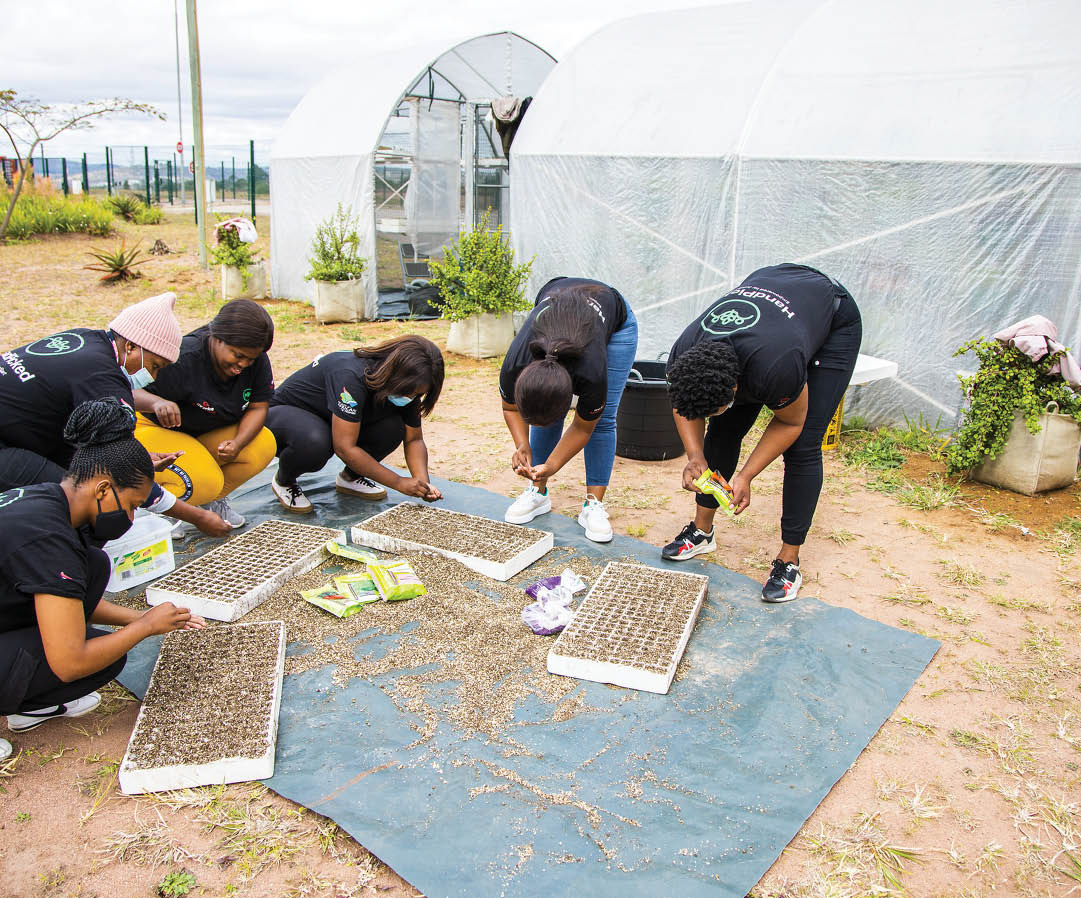
The HandPicked Programme offers practical agricultural and business skills to students who are already enrolled for agricultural studies at technical and vocational education and training
(TVET) colleges.
The foundation’s Farzanah Asmal says urban and rural farming can tackle youth unemployment by cultivating job creation, stimulating youth entrepreneurship and tackling food insecurity.
“HandPicked teaches farming methods, technical farming and agribusiness skills to youth, shifting them from consumers to producers,” says Asmal.
Thandeka Zulu an implementation partners of the programme says she is driven by uplifting communities.
“My dream is to empower more people in townships and rural communities to build resilient businesses and contribute to the economy,” Zulu says.
Implementation partners are established farmers who work with interns who are part of the HandPicked programme.
Nokubonga Shange (23) is one of the HandPicked participants. She is studying farming management at Coastal KwaZulu-Natal (KZN) TVET College. She has been trained in managing a farming business and now plans to become a farm owner and start an agricultural community project for youth in her community.
“The programme makes farming easier and more interesting. It widens the minds of new interns, exposing them to other farming methods. It is a norm for us to think that farming can only be done on farm land.
However, we have since learnt you can also farm in greenhouses,” she says.
A greenhouse is a lite structure with sides and a roof, usually made out of glass. Greenhouses are used to grow plants.
Hlengiwe Mdlolo (26), who is also at Coastal KZN TVET College, sees a future in farming and hopes to have a mixed farm in KZN.
“The agricultural industry is growing at an incredibly rapid pace. This increases the demand for qualified candidates.
There is now a unique opportunity for college graduates to find [agricultural] work faster, discover their niche and, ultimately, grow their careers much faster than they might in other industries.”
Asmal says the HandPicked Programme plans to grow agripreneurs and create food hubs for communities.
Visit www.mrpfoundation.org for more information.
Grocery vouchers for pensioners
Grocery vouchers for pensioners LondekilePeople who are over the age of 60 are receiving grocery vouchers worth R100 when they take the Coronavirus Disease (COVID-19) vaccine.
Health Minister, Dr Joe Phaahla said the grocery vouchers were part of a pilot project which seeks to encourage more South Africans to get vaccinated. The project, which is valued at R26 million, is expected to benefit 260 000 pensioners.
“The pensioners will receive the vouchers on a first-come, first-serve basis,” said Minister Phaahla.
The vouchers have been sponsored by the DG Murray Trust, Alan Gray Financial Services, Bill & Melinda Gates Foundation, Elma Vaccines Foundation and Michael and Susan Dell Foundation.
“We hope the pilot will be a success so that it can encourage other companies to come forward. We welcome other initiatives which are still being considered,” said the Minister.
He explained that the voucher is sent to the cellphone number of senior citizens registered with on the Electronic Vaccination Data System. Coupons are redeemable at Shoprite, Checkers and Usave stores.
Pensioners automatically get an invitation to receive their vouchers. This followed by an option to opt-in by dialling “YES” at no cost to the user upon receiving an SMS.
“By dialling in, they are given access to the Money Market account of Shoprite, which protects their money. They cannot lose their voucher and once they have registered, that money is available to them,” the Minister said.
Inspiring Bolekwa Salusalu triumphs over amputation
Inspiring Bolekwa Salusalu triumphs over amputation LondekileA master seamstress is making top-quality clothing, despite having no hands and only one leg.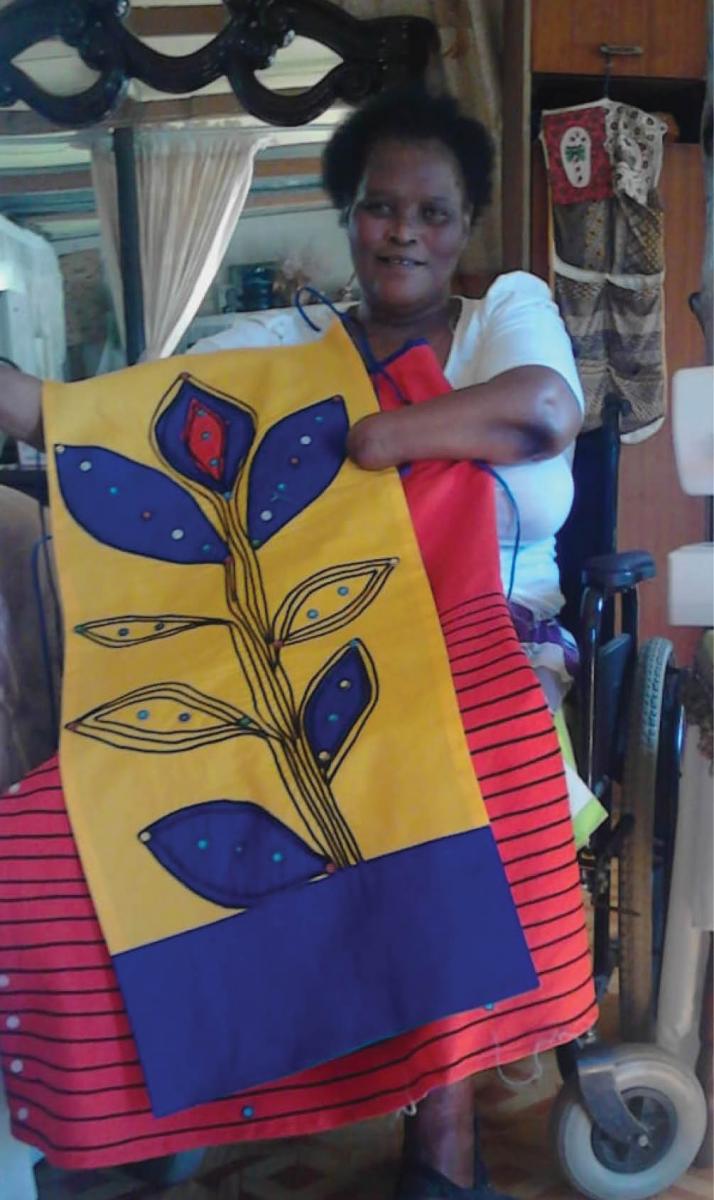
Bolekwa Salusalu (67) is part of the four-member OoMama Zintsika 1955 Sewing Primary Cooperative based in Mdantsane near East London in the Eastern Cape.
Salusalu says she relies on a lifetime of experience to do the job.
In 2009, she was diagnosed with gangrene, which develops when the supply of blood to an area of the body is interrupted. She had to undergo multiple surgeries between 2010 and 2013, and doctors were unable to save her hands and one of her legs.
“After losing both my hands, doctors gave me a rubber prosthetic [artificial body part]. I found the rubber useful in my work, even though it was not meant for that purpose,” she says.
The seamstress says using her artificial hand, she draws the patterns she wants. She gets help to cut the pieces of material and then sews them herself, using a foot-operated sewing machine.
Salusalu, who is the founder of the cooperative, makes school uniforms, traditional clothing and Madiba shirts, among other things.
She also trains and mentors women in the community who are interested in sewing. Before starting the cooperative, Salusalu ran a sewing training academy at the Buffalo City Metro’s Mdantsane community service centre.
“The municipality provided me with machines, which I used to train women, the majority of whom were young people. Through that training programme, I was able to produce seamstresses who went on to work for big clothing manufacturers,” Salusalu says.
She started sewing when she was 15, after learning from her grandmother. The experience she accumulated over the years is what has enabled her to keep working, even after the amputations.
“I did not want to feel and be treated as if I am not able to do anything. I set about doing what I knew best, and I have never looked back,” says Salusalu.
The Buffalo City Municipality, through its Special Programmes Unit assists people with disabilities to access funds and tools that will help them with their daily lives. For more details send an email to shaunpe@buffalocity.gov.za or call 043 705 1015.
Investment boost for KZN
Investment boost for KZN vuyelwanToyota recently announced massive investments in KwaZulu-Natal that will lead to more jobs in the province.
The first production run of the Toyota Corolla Cross Hybrid vehicle was recently celebrated in KZN, with President Cyril Ramaphosa present to witness the achievement.
The production of the Corolla Cross on home soil will result in Toyota investing R 2. 6 billion in the country.
The Corolla Cross is the first generation of commercial-scale hybrid electric vehicles to come off a South African assembly line. 
According to the President, this development is more than simply a new model coming off a production line, it also shows that the country is embracing the opportunities for a green economy. South Africa is one of only seven global locations for the production of this hybrid car, along with Japan, America, Brazil, Thailand, Malaysia and Taiwan. The President believes that is a testament to the skilled, productive workforce and competitive plant.
“During the plant tour, I met workers who are passionate and committed and I saw the value of the skills programme management has put in place,” he said.
The Corolla Cross will be exported to 40 countries across Africa, which will boost the African Continental Free Trade Area.
“I am advised that the company will seek to ramp up its projected 4 000 hybrid vehicles planned for next year, if the availability of batteries improves,” the President said.
He added that the R2.6 billion investment by the Japanese multinational automotive manufacturer is a vote of confidence in the country.
Toyota South Africa CEO Andrew Kirby said the company has invested over R6.1 billion in the plant over the past five years.
“So, we’re therefore committed to further developing and strengthening our business in South Africa.”
President Ramaphosa thanked Toyota for its support following the unrest in the province in July.
Job creation
Toyota has created 575 new jobs at the plant and a further 1 200 new jobs have been created in supplier companies.
The auto industry is one of the drivers of the country’s localisation programme and a significant contributor to the gross domestic product, accounting for more than 100 000 jobs.
President Ramaphosa said Toyota is also looking at increasing the number of new local suppliers from the global supply chain, which is key in the Economic Reconstruction and Recovery Plan.
“I am advised that there are 56 local suppliers for this new model, of which 16 are black-owned companies,” he said. SAnews.gov.za
Kids take on COVID-19
Kids take on COVID-19 vuyelwanNtethelelo Shezi (16) of Inanda in KwaZulu-Natal has received the Coronavirus Disease (COVID-19) vaccine and his proud of it.
This comes after the Minister of Health, Dr Joe Phaahla announced that children between the ages of 12 and 17 are now eligible for vaccination.
Shezi says after his mom, dad and older sister had been vaccinated, he was looking forward to his turn. When he heard that the vaccination programme had been extended to his age group, he went to the nearby Iqadi Clinic.
“I went there by myself because my parents taught me a lot about the vaccine. I knew that I might have some side effects, but so far, I am good,” he says. 
Shezi adds that when he talks to his peers about the vaccine, he reminds them of the freedoms they had before the COVID-19 preventative measures were implemented. This includes not having to wear a mask in public, being able to gather in groups, and not having to social distance.
“It is important to get vaccinated because we will get back to the normal life we used to live. We will be able to walk around without masks. After everyone has vaccinated, we will be free again,” he says.
Education is key
Shezi’s mother, Zinhle Makhathini, says she is relieved her son and his friends will now be protected and that the chances of them getting COVID-19 have been minimised.
Makhathini urges parents to teach their children about COVID-19 and the purpose of the vaccine.
“There is a lot of misinformation out there and, as parents, we have a responsibility to teach our children what the vaccine is about and why they need to take it.
"Once a parent has provided the correct information, children are less likely to be deceived,” she says.
Children do not need consent from their parents to vaccinate, but parents are encouraged to have open discussions with them.
According to the Department of Health, as of 31 October, 22 381 951 people had been vaccinated since the start of the mass vaccination campaign in February. Among these were almost 100 000 children.
The Pfizer vaccine has been approved by the South African Health Products Regulatory Authority for children.
Register for vaccination by going to https://vaccine.enroll.health.gov.za/#/ or calling the COVID-19 call centre at 0800 029 999.
Ensure you take along proof of identity (such as the South African ID card, birth certificate with registration number, foreign passport, or any verifiable asylum/refugee proof of identity) when you go to a vaccination site.
To find a vaccination site near you, visit https://sacoronavirus.co.za/active-vaccination-sites/
According to the Department of Health, you might have short-lived side effects after receiving the vaccine. The most common side effects include:
- Pain, swelling, or redness where the vaccine was injected;
- Mild fever;
- Chills;
- Feeling tired;
- Headache;
- Muscle and joint aches.
Mhlengi Ngcobo grooms youth for agriculture
Mhlengi Ngcobo grooms youth for agriculture UrsulaMhlengi Ngcobo (23) is a farmer and social entrepreneur who wishes to see his community prosper. 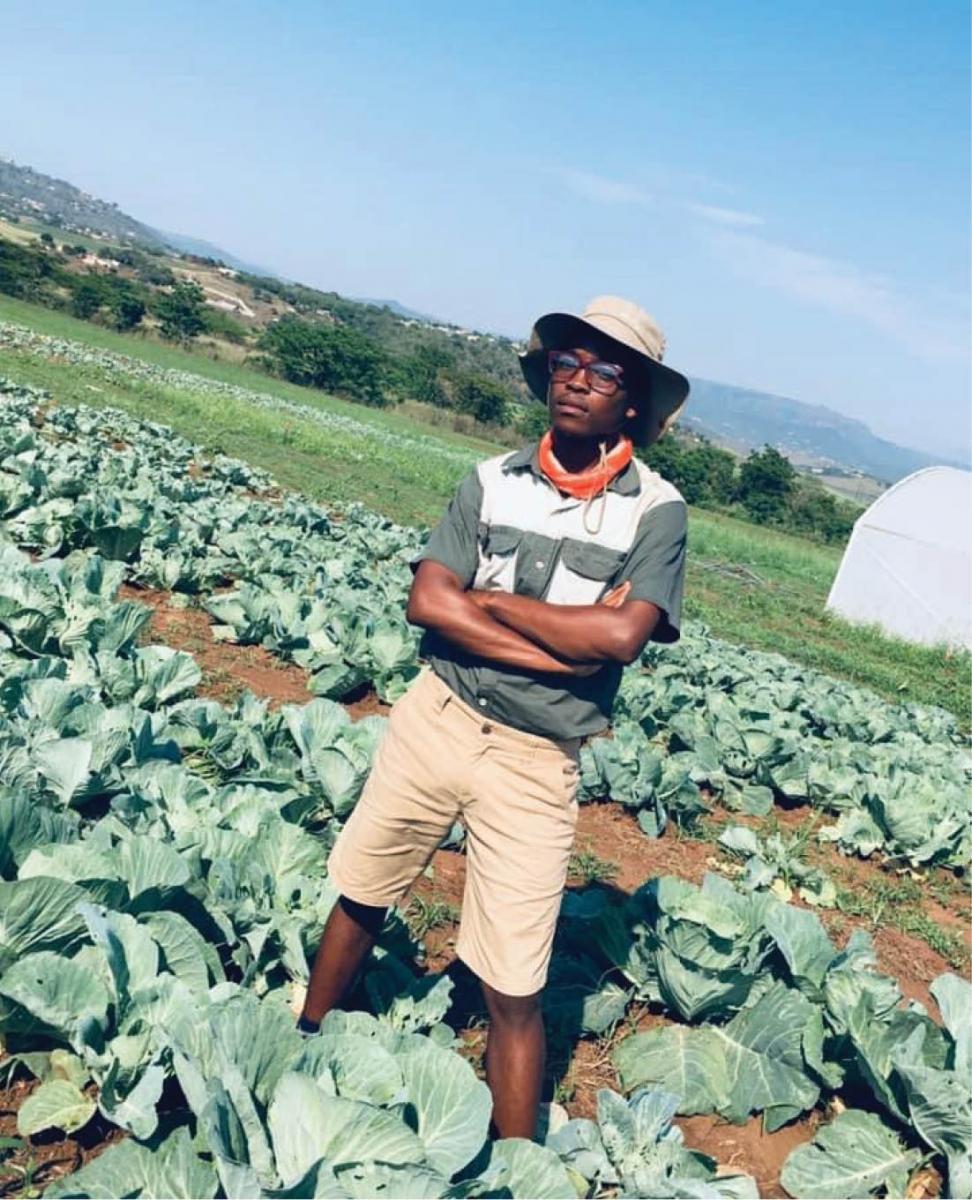
Ngcobo, from Kwa-Maphumulo in northern KwaZulu-Natal, believes in imparting farming skills to youth to help them rise above poverty and realise their potential.
The young farmer mentors 33 young people who completed his training programme and went on to start their own farming projects. The training targets youth from underprivileged backgrounds. So far, Ngcobo has trained more than 250 youngsters near his farm. Some of them stay in informal settlements.
“If we train people, they can produce their own food and generate their own income if they choose to sell their produce,” Ngcobo says.
He started this self-funded project in the middle of last year. His trainees are taught plant production and hydroponic systems (the growing of plants without soil).
“The 33 people I mentor supply major markets in the province with quality vegetables. This proves that the training programme works,” he says.
Ngcobo regards himself as an accidental commercial farmer. After completing a business management diploma at Berea Technical College in Durban, he struggled to find a job.
In 2019, he started planting crops on his family land, which had been unused for many years.
Today, Ngcobo manages a 120-hectare farm which produces sugarcane, macadamia nuts and cabbages. The farm has open fields for vegetable farming and a space for hydroponic farming. He employs 10 people.
“I sell my vegetables to local retailers, wholesalers, supermarkets and the Durban Fresh Produce Market, which is one of the biggest markets in KwaZulu-Natal,” he says.
Ngcobo encourages youth to initiate their own projects and only expect government support to meet them halfway. He also advises those with academic qualifications like him, but who are battling to find work, to consider entering other fields to make it in life.
For more information contact Mhlengi Ngcobo on 076 961 1177
Nkosinathi Masina shoots for the stars
Nkosinathi Masina shoots for the stars LondekileBasketball rising star Nkosinathi Masina (17) recently received is Coronavirus Disease (COVID19) vaccine.
He plays for the Soweto Basketball Academy and supports the government’s Return to Play campaign.
Return to Play is a campaign that encourages sports enthusiasts to get vaccinated so that they can return to watching live games in sports stadiums.
Masina says players enjoy being cheered on by fans during live matches, and it is through being vaccinated that live sports can continue.
“Fans should be vaccinate so we can all be safe. Once we vaccinate we can resume the lives we lead before COVID-19,” he adds.
A shot at glory
Masina believes that sport, especially basketball is a wonderful way to give young people a shot at glory.
Masina ran out on the court for the first time in 2015 and, on two occasions, has helped his team win major competitions.
“In 2019, we won the u/14 section of the St John’s College Basketball Tournament, and in 2020, I was part of the team that won the under 16 section,” he says.
The event is Southern Africa’s biggest boys’ school basketball tournament.
His hard work has won him 11 gold, seven silver and three bronzes medals.
“In this year’s St John’s College Basketball Tournament, I was one of the u/19 All Stars. The award is given to the best players in the tournament,” says Masina.
He adds that basketball has stopped him from falling into a life of crime or drugs, unlike many of his peers in White City, Soweto where he lives.
“Basketball has helped me keep busy and disciplined.”
Standing 1.8-metres tall, the small forward cum shooting guard hopes to make the national team. He has already been selected to represent Gauteng.
Young
players who want to join the Soweto Basketball Academy can send an email to sowetobasketball2016@gmail.com or call 079 134 9494.
Nkululeko Lehapa suited to the fashion business
Nkululeko Lehapa suited to the fashion business LondekileWhen Nkululeko Lehapa (27) could not afford to pay university fees, he applied for a job to fund his studies.He was required to wear formal clothing to work, which he could not afford. His solution was to make his own clothes.
Lehapa's passion for fashion ultimately turned into a business and he started designing suits for his colleagues and graduates.
“I was inspired by unaffordability. I had to find a full-time job at a private bank while studying towards a degree in Applied Mathematics and Economics at the University of the Witwatersrand,” he says.
He started his business, Busanimen in 2013. Eight years later, it has 12 employees, and tailors stylish and exclusive men’s suits for special occasions, as well as regular suits, at affordable prices.
Despite Busanimen’s growth, Lehapa kept his full-time job until 2017, which gave him the security of a regular income.
“My clients wanted exclusive suits because many people wear similar clothes bought at retail stores for important functions. This inspired me to tailor suits for men who wanted affordable but exclusive formal wear,” he says.
Business takes a knock
In 2020, Busanimen took a knock due to the Coronavirus Disease (COVID-19) lockdown regulations.
“Our business suffered because many people worked from home and did not need suits, as there were no events to attend,” he says.
So Lehapa decided to look for new markets.
“COVID-19 forced me to look at how I could sustain the business beyond what I was offering at the time, and I decided to launch Busanitextiles.”
This branch of the business manufactures high-quantity hospital linen, hospital wear and school uniforms.
Lehapa’s business is one of 12 supported by insurance company Hollard’s Big Ads for Small Business initiative, which advertises small businesses via billboards, street pole adverts, radio slots, digital media and television spots.
“The initiative helped us reach more people, and when the country moved to Alert Level 1 , we became very busy. It also helped us network with other businesses. The Busanitextiles branch came to life due to this initiative,” he says.
Busanimen can be reached on www.Busanimen.com or on Facebook, Twitter and Instagram @busanimen
To find out more about the Hollard’s Big Ads for Small Business Initiative, visit https://www.hollard.co.za/bigads
Post-matric opportunities for youth
Post-matric opportunities for youth UrsulaYoung people in South Africa have a number of post matric opportunities provided by government to improve their lives. 
Vuk'uzenzele has compiled a list of options to explore.
Second chance programme
If you did not pass matric or dropped out of high school, the Department of Basic Education’s Second Chance Programme enables you to earn your National Senior Certificate.
The Second Chance programme supports anyone who wants to achieve or improve a matric qualification, subject-by-subject and on a part-time basis. There are no costs involved.
Who qualifies? People who want to improve their matric results, who failed matric and want a second chance at passing, and those who left school after passing Grade 9 (then Standard 7), are 21 or older.
Register at one of the more than 70 district education offices across the country or online at www.eservices.gov.za. Registration closes on 31 January 2022.
Email: SecondChance@dbe.gov.za, or visit www.education.gov.za (click on Programmes, Second Chance Programme).
SAYouth
An exciting initiative launched by President Cyril Ramaphosa in June 2021 is SAYouth. It is part of the Presidential Youth Employment Intervention and aims to link young people to jobs and work experiences.
Young people can find out about job, learnership, bursary, work experience and entrepreneurial opportunities in their area on www.sayouth.mobi, which is free to use on mobile phones. Call 0800 727 272.
Become an entrepreneur
The Small Enterprise Development Agency develops, supports and promotes small enterprises throughout the country. It can guide people on how to start their own businesses – from business plans, to where to get funding, to registering your business. Call 0860 663 7867, email info@seda.org.za, or visit www.seda.org.za
TVET colleges
Technical and vocational education and training (TVET) colleges offer education and training that prepares students for a range of jobs, employment or entrepreneurial possibilities.
To find out more, visit www.tvetcolleges.co.za.
The National Artisan Development and Support Centre provides artisan career guidance. It also offers information related to accredited trade test centres and skills development providers. Call 086 999 0125, email nadscinfo@dhet.gov.za, or visit https://nadsc.dhet.gov.za
Bursaries
If you want to become a teacher, apply for a Funza Lushaka bursary. Applications close on 1 February, 2022. First-time applicants must be 30 years or younger. Visit www.funzalushaka.doe.gov.za
To learn about other bursary opportunities, visit www.careerhelp.org.za/funding, www.allbursaries.co.za, or www.zabursaries.co.za
SETA learnerships
Sector Education and Training Authorities (SETA) offer learnerships at different times of the year. There are no costs in applying for these learnerships and you are also paid while you are doing the learnership.
Learnerships combine workplace experience with formal training so you will get a formal qualification and have real work experience.
To find out more, visit www.dhet.gov.za/ and click on SETAs.
NYDA
The National Youth Development Agency (NYDA) provides career guidance services, mentorship, skills development and training, business management training, and entrepreneurial development and support. Call 087 158 4742, email info@nyda.gov.za or visit www.nyda.gov.za/
Khetha
Government’s Khetha programme provides career information, advice and counselling services. Call 086 999 0123, email careerhelp@dhet.gov.za or go to www.facebook.com/careerhelp. Here you will be able to access webinars, bursaries and other opportunities.
Another great resource is www.skillsportal.co.za (click on Education).
Presidential Employment Stimulus drives job creation
Presidential Employment Stimulus drives job creation vuyelwanThe recent launch of the second phase of the Presidential Employment Stimulus represents great progress in our quest to create job opportunities for unemployed South Africans.
We established the employment stimulus last year to create as many opportunities as possible in the shortest possible time. This required new and innovative ways of working to implement programmes at an unprecedented speed and scale.
The recruitment process of the many people who were unemployed made use of digital platforms to reach as many eligible participants as possible. For example, small-scale farmers were able to apply for support via USSD and receive input vouchers to their cellphones.
Since the Department of Basic Education opened applications for the next cohort of school assistants recently, over 940 000 young people have applied via the zero-rated recruitment platform called SAYouth.mobi, which forms part of the national Pathway Management Network.
The use of new technologies in offering employment opportunities has made recruitment much easier, quicker and more transparent.
The Presidential Employment Stimulus has enabled and facilitated cooperation in the public sector. Programmes in phase one were implemented by 11 national departments. Their activities were aligned to avoid duplication and wastage and enhance learning from the experience of others.
The employment stimulus has also shown the importance of social partnership. Government, business, labour and civil society have come together to bring those who are unemployed into the economy. 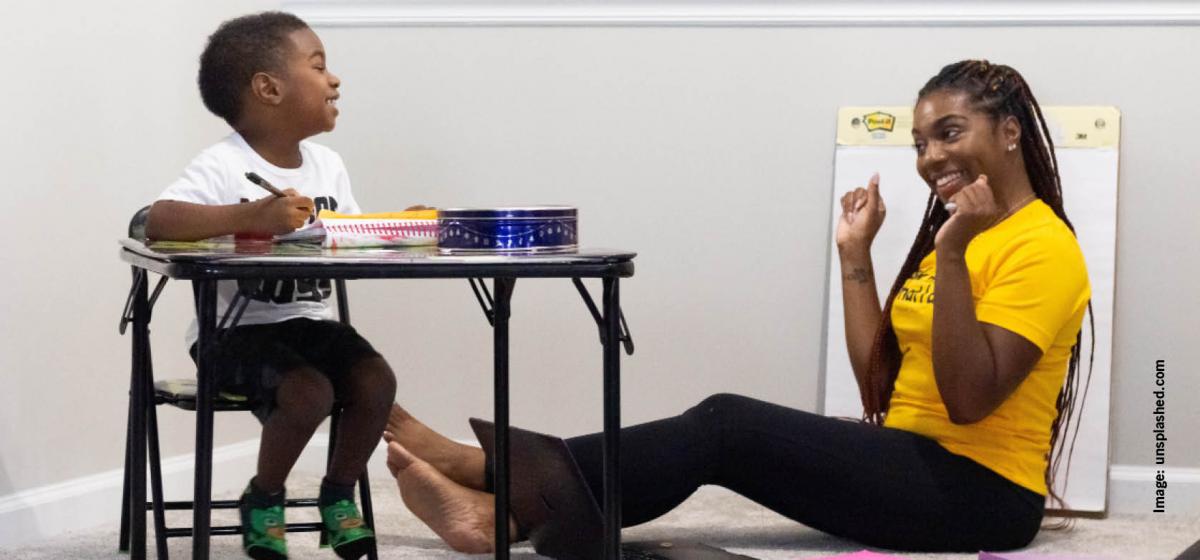
More than half a million South Africans have already benefitted from the first phase, with several programmes still underway. Participants were given the opportunity to earn a livelihood, to learn new skills and upgrade existing ones, and to use their experience as a springboard to get another job or to self-employment.
For example, a number of participants appointed by the Department of Public Works and Infrastructure in its phase one programmes were able to secure private sector employment by the end of March 2021.
Many of those in the first cohort of school assistants, similarly, have found their way into employment, armed with experience, training and references.
The programmes implemented through the Presidential Employment Stimulus have also benefited communities more broadly. The focus has been on job creation in sectors with direct social impact such as education, food security, public infrastructure maintenance and environmental protection.
Through this Presidential Employment Stimulus young people were employed to support and assist teachers in our schools. Others were employed to build bridges in rural communities.
Many Early Childhood Development Centres were helped to survive and reopen. Subsistence farmers were supported to expand production, and environmental assets such as rivers and wetlands were restored and maintained.
As part of phase two, we are establishing a Social Employment Fund that will support work for the common good led by community organisations in areas as diverse as urban agriculture, public art, informal settlement upgrading and community safety.
In the midst of the severe economic setback caused by the Coronavirus Disease pandemic, public and social employment has provided an important stimulus to job creation. This is the implementation of our commitment that the state should actively support employment while the labour market recovers.
Through the Presidential Employment Stimulus we have brought young people into the labour force in far greater numbers in an unprecedented manner in a short space of time. Some 84% of the participants in phase one were young people under the age of 35, and two-thirds were women.
In phase two we expect this number to be even higher, as the stimulus will provide almost R1 billion in funding for the Presidential Youth Employment Intervention.
As part of the intervention, several young people will be recruited into a revitalised National Youth Service. Young people will receive training in digital skills and youth-owned enterprises will receive support to expand and hire.
Unemployment in our country is a crisis. We cannot afford endless delays in addressing this problem because of bureaucratic red-tape, outdated recruitment processes, lack of capacity and planning, or programmes that are short-lived or unsustainable.
The success of the Presidential Employment Stimulus has shown that when we work together, move with speed, think creatively and manage our resources well, we can make a huge impact.
The Presidential Employment Stimulus has demonstrated that we can create jobs if we work together as the public sector, labour, community and government.
I have no doubt that the next phase of the Presidential Employment Stimulus will bring us even closer to meeting our collective goal of decent work and opportunities for all.
Register your ECD centre
Register your ECD centre UrsulaEarly Childhood Development (ECD) centres must continue to register with the provincial departments of Social Developments until 1 April 2022. 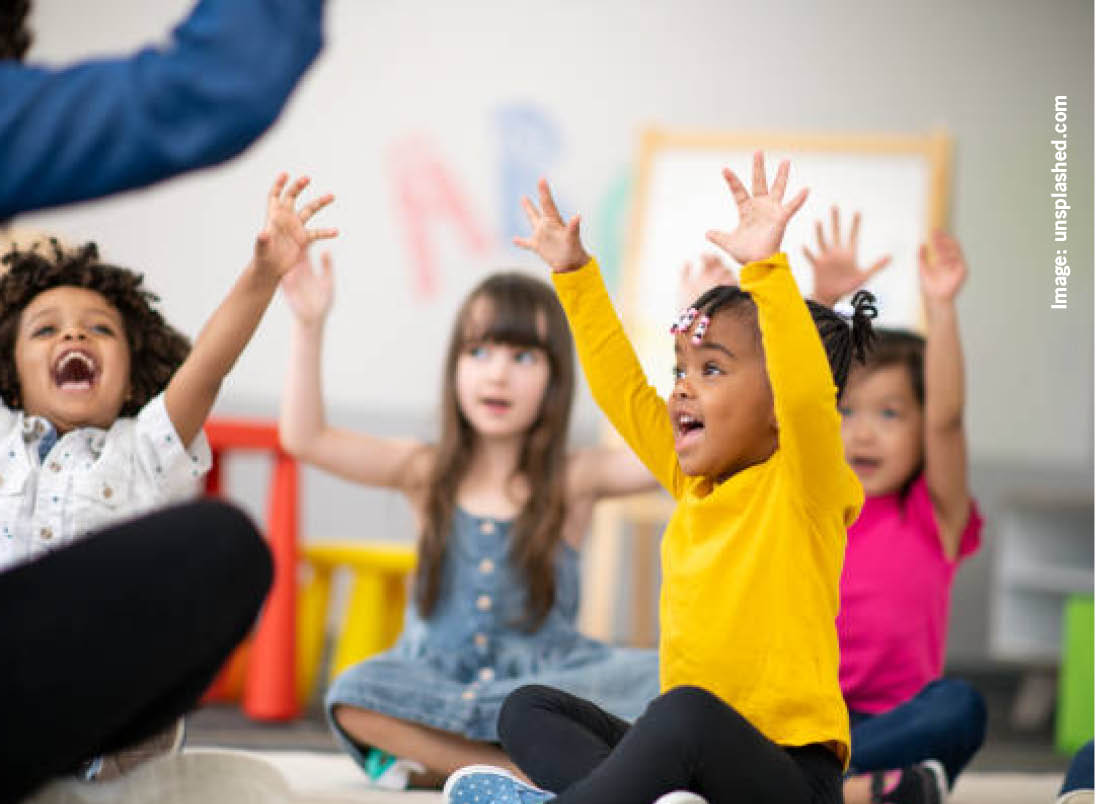
This is because the migration of the ECD centres from the Department of Social Development to the Department of Basic Education is still ongoing.
The Department of Basic Education said the migration process will add more value to the education of young children before they can start with Grade 1.
“Once the ECDs are registered with our department, we will be able to include parts of the learning curriculum in the ECD programmes to help prepare young children for school,” said the department.
It wants to focus on the foundation phase because it believes that if learners receive good quality education from an early age, they will do better in higher grades.
The migration will also allow the department to adequately monitor and evaluate the education offered by ECD centres.
How to register?
To successfully register your ECD centre, it has to meet the norms and standards as stated in the Children’s Act. Some of the norms and standards include:
- Clearance certificates from the municipality for zoning, fire and safety;
- Structured learning programmes for the children;
- Emergency plans for children who may become ill;
- Nutritious meals.
Registration is only provided for five years at a time, after which registration must be renewed.
The benefits of registration include:
- An ECD centre to operate legally;
- The centre may qualify for a subsidy;
- The centre can benefit from free training programmes.
Failure to register an ECD centre is a contravention of the Children’s Act of 2005, which means the centre would be operating illegally.
The Department of Social Development can approach the High Court to stop an illegal ECD centre from operating.
For more information regarding registrations, contact your nearest Social Development office
Specialised artisan centre offers five in-demand trades
Specialised artisan centre offers five in-demand trades UrsulaTshwane South Technical and Vocational Education and Training (TVET) College at Pretoria West Campus is the first in South Africa to have five specialist trades for artisanal skills. 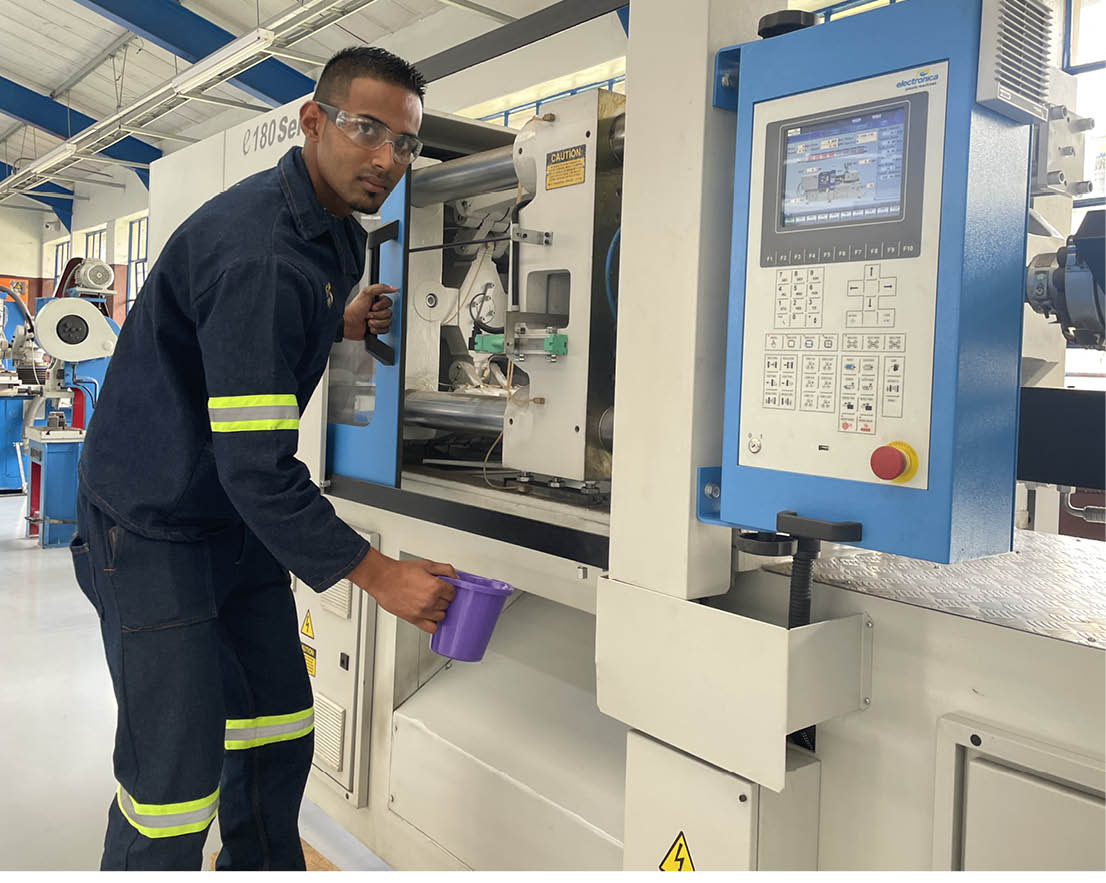
This is according to Deputy Minister of Higher Education, Science and Innovation Buti Manamela who recently opened the Gandhi-Mandela Centre of Specialisation for Artisan Skills at the college.
The centre offers mechanical fitting, millwright, electrical, boilermaker, and fitting and turning courses.
Deputy Minister Manamela says centres of specialisation are well positioned to prepare students for the workplace, or for self-employment, by ensuring they are taught the skills employers need. The Gandhi-Mandela Centre of Specialisation for Artisanal Skills is one of the 30 centres that will be rolled out across the country.
The centre was named after India's civil right's leader Mahatma Gandhi and South Africa's former President Nelson Mandela.The two countries signed a Memorandum of Understanding (MOU) in 2018 to set up the Gandhi-Mandela Centre of Specialisation for Artisanal Skills in South Africa.
In 2018, the department announced it intended to launch 26 centres of specialisation, prioritising 13 occupational trades that are in high demand to curb the shortage of trade skills, and to reduce unemployment and poverty.
“The centres of specialisation are located at 19 TVET colleges across the country. They were provided with resources to upgrade their workshops and equipment to deliver effectively on these much-needed skills,” he says.
Through the National Skills Fund, the department allocated R150-million to fund the initial set-up costs. The government of India injected R48-million worth of equipment and tools as part of the MOU it signed with the South Africa in 2018.
“This investment has enabled us to increase the number of centres of specialisation from the 26 initially planned, to 30,”says Minister Manamela.
World-class equipment
Daniel Ramnarain (24) is an apprentice mechanical fitter at the college and is one of the first students to use the world-class equipment.
“I have completed my phase 1 assessment. I am currently working as part of my apprenticeship, and this prepares me for the work environment, ” he says.
Ramnarain is currently working at Matimba Power Station in Lephalale Limpopo as a trainee apprentice.
He still has to complete phase 2 and 3 of the course, and pass a trade test, before he graduates.
“The centre teaches us about using machines and strategies to make production faster,” he says.
Ramnarain plans to further his studies and become a mechanical engineer. “I would like to get as much work experience as possible and open my own business,” he says.
To enrol for one of the courses at the Gandhi-Mandela Centre of Specialisation for the Artisan Skills, you need to have a Grade 12 certificate and have an N2 qualification. Applications for the 2022 academic year have not yet opened.
For more information, contact the college on 012 380 5000 or email bongi@tsc.edu.za
Start-up Ifutho takes on paper giants
Start-up Ifutho takes on paper giants LondekileWhen Mbalenhle Ngcobo (29) saw the amount of paper used in her former workplace, it sparked the idea to start her own brand – Ifutho Paper.
Ngcobo, from Ballito in KwaZulu-Natal, was working as an administrator at the University of South Africa in 2016 when – realising the office paper market was dominated by two brands, Typek and Rotatrim – she saw a niche in the market for a newcomer.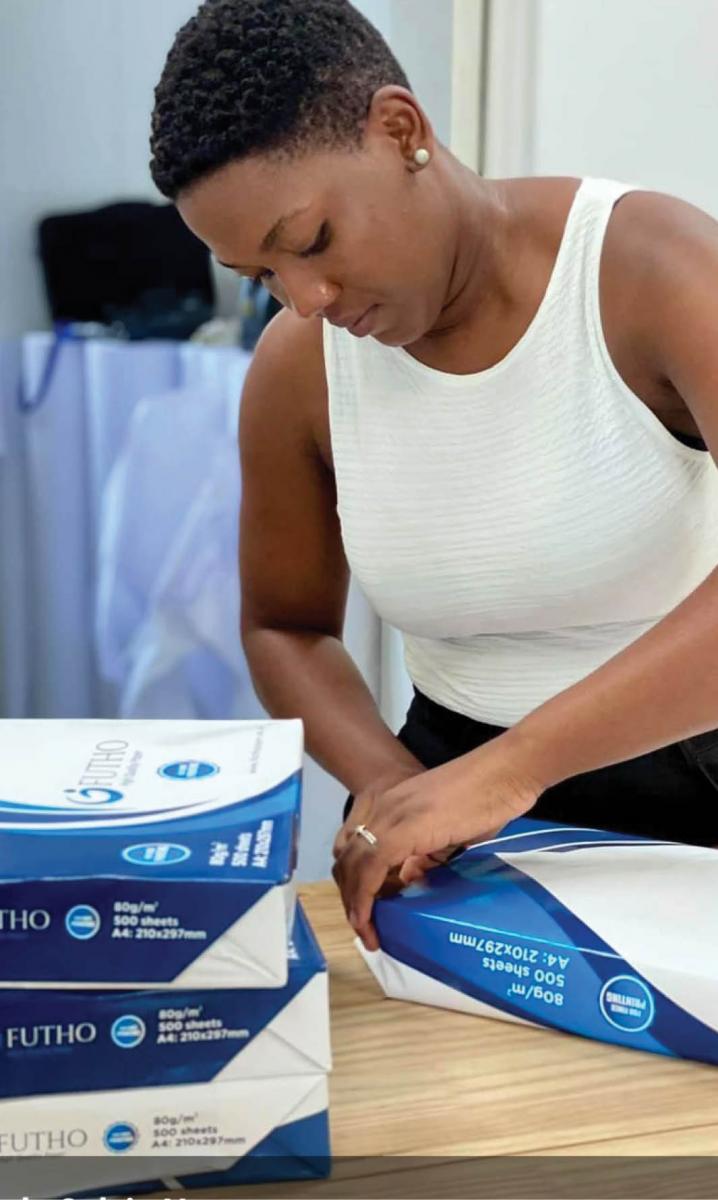
In 2017, Ngcobo started selling existing brands of copier paper to better understand the market and generate the capital she would need to launch her own paper brand. She also attended various incubator programmes to sharpen her entrepreneurial skills. In November 2018, her first paper prototype was produced. In 2019, she went into full production.
Ngcobo received assistance from the National Youth Development Agency (NYDA), which gave her funding of R50 000 in 2020.
Her company sources reels of paper from suppliers and uses its machines to cut them into A4 and A3 sheets, which are then packaged and sold under the Ifutho label.
Ifutho has two employees, one in production and one in sales and deliveries.
Currently, sales are mainly made in KwaZulu-Natal, but Ngcobo says there is demand for her product in Johannesburg and the Eastern Cape. She hopes to get a bigger machine to increase production and grow her market.
With her brand being new, she has to go the extra mile to market the business.
Ngcobo has given samples to potential clients to show that her product could be trusted.
Ngcobo says even though there is a global move towards a paperless environment, there are numerous operations that still rely on printing and copying, which she intends on targeting.
“Industries that rely on paper include schools, government departments and municipalities,” she says.
The NYDA Grant Programme provides funding for South Africans aged between 18 and 35. For more information, call 087 158 6345/ 5738 or visit www.nyda.gov.za
Support for child-headed households
Support for child-headed households UrsulaThe Department of Social Development's Risiha Programme is providing much-needed support to child-headed households. 
The Minister of Social Development Lindiwe Zulu and Mpumalanga MEC for Social Development Lindiwe Ntshalintshali recently launched the community-based child protection programme in Kwa Guqa, in Emalahleni.
Risiha is a Xitsonga word for ‘resilience’.
“The programme aims to protect orphans and vulnerable children, some of whom live in child- and youth-headed households, some have chronic health conditions and some live and work on the streets,” says the department’s spokesperson Lumka Oliphant.
While the programme was launched in Mpumalanga, the department will implement it in all nine provinces. “The aim is to move children from vulnerability to resilience,” says Oliphant.
The Risiha Programme will provide a services that aim to address the needs of vulnerable children. This includes children who are exposed to risk factors that may impact negatively their development, care and protection, and whose access to childcare and protection services is limited.
“The core package of services focuses on seven social development services areas, namely food and nutrition, economic strengthening, educational support, psychosocial support, HIV and AIDS, childcare, protection and health,” says Oliphant.
“The programme seeks to strengthen families and communities as a first line of response in the child protection system, with a particular focus on children living in disadvantaged communities."
The programme will be implemented by youth care workers and social service professionals who will provide advice and support to the families.
For more information about the programme call Yvonne Makhubedu at 066 480 7670, Portia Mthembu at 066 480 8979 or Joyce Ndzuta at 066 480 7245, who will direct community members to a provincial coordinator.
What to do if you’ve been sexually assaulted
What to do if you’ve been sexually assaulted vuyelwanIf you have been sexually assaulted, these are the steps that you can follow to recieve help.
Seek medical help as soon as possible – At a healthcare facility, any injuries will be treated and evidence will be collected, which will help if your case goes to court. Medication will be provided to prevent HIV, other sexually transmitted infections and unwanted pregnancy.
The easiest way to get medical help is to go to the closest hospital's emergency department, clinic, or police station. The SAPS are expected to provide transport to an appropriate healthcare facility.
Things to avoid – Do not wash yourself before seeking help, because this will destroy vital evidence. If you must change your clothing, take the clothes you were wearing at the time of the attack with you.If you experienced forced oral sex or kissing, do not smoke, eat, drink or brush your teeth until you’ve been examined.
Things to do –Take along sheets or other items that may have evidence on them. Place the unwashed items in a paper bag or roll them up in newspaper. Don’t put them in a plastic bag, because this may ruin the evidence. If possible, take along clean clothes.
Support– A friend or a loved one that you trust can provide you with support.
Lay a charge – Lay a charge at the police station once you are up to it. If the survivor is a child or a person with a mental impairment, a case must by law be opened with the police. There is no time limit on when you can lay a charge.
Get counselling – Counselling should be offered at the health facility. If this does not happen, contact the Gender-Based-Violence Command Centre to talk to someone about your ordeal. Care Centre- You can also seek help at a Thuthuzela Care Centre. These are one-stop facilities for survivors of sexual assaults.
They provide a place of comfort for survivors and give them access to medical professionals, skilled prosecutors, social workers, magistrates and the police. Services are free of charge. Visit www.gov.za/TCC to find your closest centre.
This information was supplied by the Western Cape Government.
If you’re a victim of GBV, or you know someone who needs help, contact the national GBV Command Centre.
Call 080 0428 428, send a ‘please call me’ by dialling *120*7867#, or SMS ‘help’to 31531.
